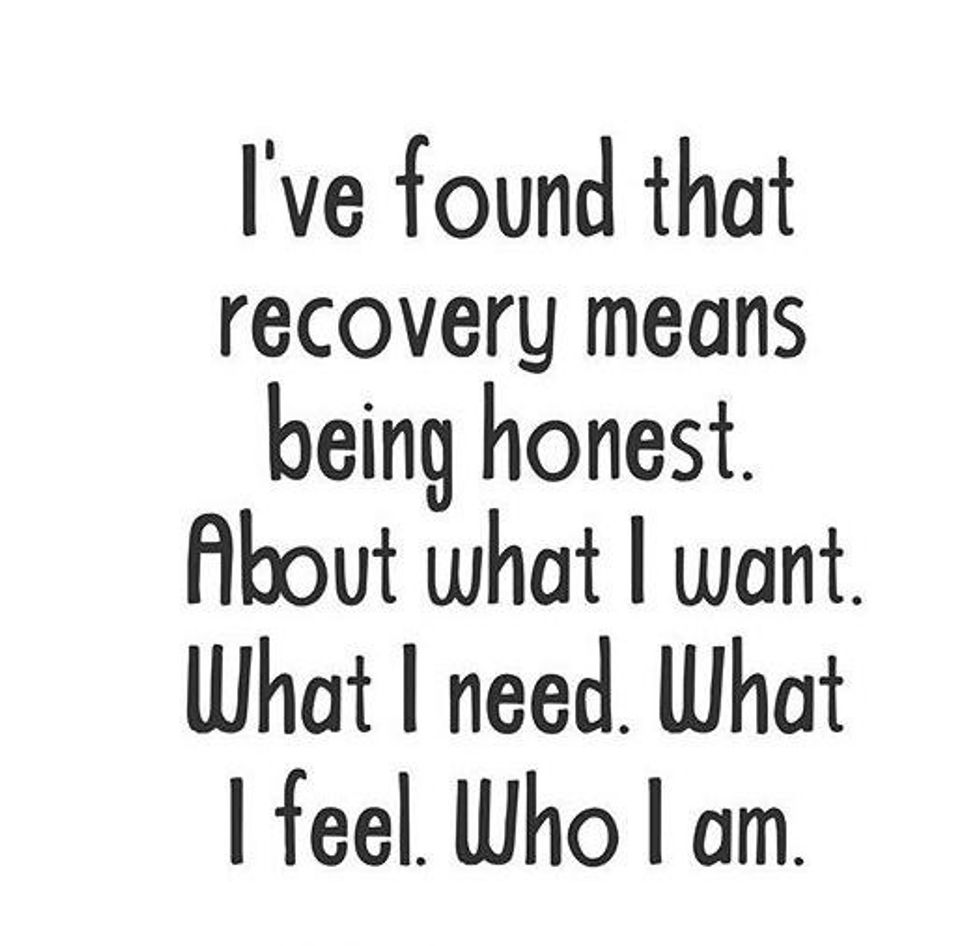It's time we started treating our minds and bodies with respect.
When I was young, I never really had problems with anxiety. I've always been somewhat of a worrier, but it never encompassed my life. It was entirely manageable. Actually, anxiety and other mental health issues run in my family. I never thought twice about it, considering I was young and it was never a problem. It was not until I left for college that my anxiety was manifested, and I showed risk factors. I learned that I don't deal with transitions very well, and I longed for the familiarity of the past. As I got farther and farther away from what was comfortable, the cloud of anxiety over my head grew stronger and stronger. I was severely disconnected from my daily life, and there were many days I could not stop crying. After a series of events and by talking to my mom about it, I finally called the Counseling Center at the University of Dayton to make my first appointment. I realized I was not OK, and my life did not have to be that way. I just needed some help. My only regret is that I did not call sooner.
According to many researchers, mental illnesses tend to manifest in the young adult years. It's not very understood as to why exactly these disorders manifest during this stage of life, but many of those researchers think it is a mix of development factors and certain stressors. The Kim Foundation, a resource for those who are struggling or have loved ones who struggle with mental illness, states "an estimated 26.2 percent of Americans ages 18 and older or about one in four adults [emphasis added] suffer from a diagnosable mental disorder in a given year." They say that translates to about 57.7 million people in the United States alone. If 57.7 million people suffer from mental illness, chances are someone you know is struggling with this very issue, from mild to severe.
This is exactly why we need to erase the stigma surrounding mental health. If there are so many people who suffer from a diagnosable disorder, why are we still shaming those who need help? Mental illness is just as real as any physical disorder we could have. It's just transparent. For those who do not have a mental illness, you can help erase the stigma, too. If your loved one is having a rough day, be there for them. Recognize their health is important, and ask if there is anything you could do for them. They might say no, but it's so helpful to know there are people who support you anyway. Don't ask if they're making excuses, or to calm down, and don't take an episode personally.
When Demi Lovato spoke at the DNC this year in Philadelphia, she said "this is not about politics. It is simply the right thing to do." Her example shows us that many people can live normal and healthy lives with mental illness.
Your mental health should be one of your #1 concerns and anyone who tells you otherwise is lying
— Sarah Michelle † (@catholic_love) August 11, 2016
Make a call to a therapist and schedule that appointment. If you're waiting for a sign, this is it. You deserve to get help and need to get TLC from yourself. The burden can be lifted off of your shoulders. I waited over an entire year to get help because I lied to myself and I said I was fine, and I thought it meant I was crazy. What a lie the world tells us! Therapy is only designed to help. I am so grateful for my counselor who guided me through my first steps of recovery. My negative thinking over the course of my life needed to be undone; it just finally caught up with me. Those I have met who have a mental illness are some of the most compassionate and understanding people I know because they know what it means to suffer.
You owe it to yourself to make that appointment.




















